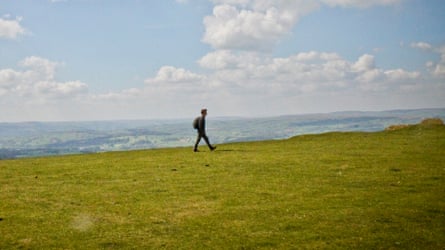The sounds of Irish cattle being blessed by a priest, the tick-tocking of one of the largest collection of clocks in the UK and the animal sounds of a zoo at dusk are to be highlights of a regular BBC Radio 3 series.
Alan Davey, controller of Radio 3, has announced an autumn schedule that is to include a dedicated and permanent offering of what might be called slow radio.
The station has broadcast slow radio in the past, but Davey promised a more rigorous commitment with a raft of new commissions that would provide listeners with “a chance for quiet mindfulness and a consideration of the world from another angle”.
Davey, who called it “meditative, slightly old fashioned” radio, said it chimed in with a resurgence in the appetite for long-form reading and believes the same can be said for classical music.
“I believe we are at a tipping point. For a long time people have been encouraged to consume things in short chunks but I think there is increasingly a longing amongst younger audiences, and certainly an appetite I see in live performance, for longer things, things that take the time that they take, that will take you out of something for a bit.”
Davey said he was big fan of slow radio and spent part of the weekend at the End of the Road festival in Dorset in a BBC tent listening to sounds of nightingales and metropolitan Tokyo.
“It is a sense of mindfulness, if you like,” he said. “It is what I also get from listening to classical music and I believe this is all part of what we offer ... it gets you out of the world for a time and gives you a new perspective.”
The 30-minute programmes will include sounds from the Burren cattle blessing, a revival of an annual ritual in County Clare; a zoo at dusk; Durham cathedral in the evening; and the tolling, chiming, ticking and pealing from a huge collection of clocks.

On Christmas Eve the station will broadcast a slow radio walk, three hours of Horatio Clare walking through the Black Forest.
In a similar vein, Davey announced plans for the station to mark the 100th anniversary of the first world war with a series of “sonic memorials”.
The plan involves sending a sound recordist out to battlefields across the world to record contemporary sounds. They include the site of the Battle of Antietam, fought in 1862 during the American civil war; the site of the Lochnagar crater, caused by a huge explosion at the beginning of the Battle of the Somme; sounds from Kent will represent the Battle of Britain; and the site of the Chinese civil war campaign of Pingjin.
There will also be recording from modern battles including the frontline in Helmand province in Afghanistan and the site of the Halabja chemical attack, which happened during the last days of the Iran-Iraq war in 1988.
The sounds will be broadcast every hour on the hour, on 11 November, apart from the normal minute of silence at 11am.
Other season highlights will include the world premiere of a recently rediscovered play by novelist Edith Wharton; the first ever voice-activated edition of a Radio 3 programme; and Prof Brian Cox joining forces with the BBC Symphony Orchestra for a centenary performance of Gustav Holst’s The Planets.
Davey said Radio 3 was more than just a radio station. “We are a place to get away from the frenzy of everyday life and better understand the world in which we live.”
